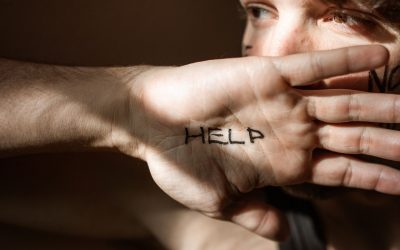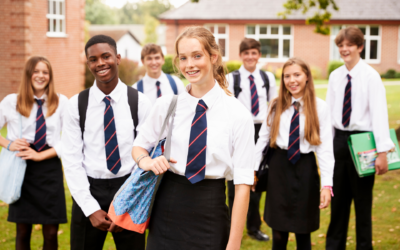Join us in creating safer school environments by empowering youth with MENgage and EmpowHER aimed at students in Year 9. Together, let us challenge harmful norms and create a violence-free future.
MENgage & EmpowHER
The Haven Wolverhampton is the lead provider of Domestic Abuse services in the city of Wolverhampton, offering steadfast support to women and children enduring the harrowing effects of violence and abuse for over five decades. Through our extensive experience, we’ve witnessed firsthand how the power dynamics play out in abusive relationships. Recognising the urgent need for societal change, particularly in redefining stereotypical gender norms, we advocate for a shift towards a more equitable understanding of masculinity and power.
We believe in the critical importance of early intervention and prevention in cultivating healthy relationships and fostering a culture of respect and equality. Using this ethos, we have developed MENgage and EmpowHER, in line with the Relationships and Sex Education Guidance and the Ending VAWG Strategy to support your school in meeting Ofsted outcomes as outlined in the Education Inspection Framework. We cover crucial topics such as consent, misogyny, and gender inequality, empowering young people to recognise and combat harmful behaviours. By instilling these values early on, we aspire to create a future generation equipped with the tools to dismantle violence against women and girls and forge a path towards a safer, more inclusive society.
.
The Facts & Figures
Source: “It’s Just Everywhere” – A study on sexism in schools and how we tackle it
by National Education Union & UK Feminista
%
Less than a quarter of female students at mixed-sex schools think their school takes sexism seriously enough
%
of secondary school students are unsure or not aware of the existence of any policies and practices in their school related to preventing sexism
A quarter of all secondary school teachers say they witness gender stereotyping and discrimination in their school on a daily basis.
%
Just one in five secondary school teachers has received training in recognising and tackling sexism as part of their Initial Teacher Education
%
From the year 2017 to 2019, reports of sexual abuse between children doubled to 16,000 cases - 10% of those accused were aged 10 years of age or under
%
of female students at mixed-sex schools have personally experienced some form of sexual harassment at school
What students are saying…
Frequently asked questions
Why does the programme take six weeks?
This programme explores deep concepts and critically analyses societal norms with students, which is a process which takes time. Our aim is more than to merely give the children new information; we desire to equip them with critical tools they can take forwards into other areas of life, using them to inform themselves and others. Nevertheless, when schools or students have particular needs, we are able to facilitate bespoke sessions covering specific topics. This can take place within one session, during an assembly, or over a specified number of sessions. We believe that the programme has the potential to be transformative and will always recommend that wherever possible all students take part in the entire programme.
Which students will benefit from the programmes?
This programme is not targeted at students with specific needs. We are all raised in a society that has particular ideas regarding gender and therefore we are all impacted by these norms and constructs. A diverse set of students from a range of different backgrounds adds depth to the conversations, exploration, and debates that the groups engage in.
What about students displaying problematic or concerning behaviours?
While some students needs may be more apparent to teaching and pastoral staff, as we are challenging often deep-set, normalised ideas prominent and reinforced in all areas of society, we know that every student will gain from taking part. Also, students may have hidden struggles or challenges that others are entirely unaware of, and we would hate for them to miss out due to not being selected.
What about missed lessons?
We of course would not want students to miss out on important lessons as set by the school curriculum. What many schools prefer to do is rotate the sessions week by week. A class that sees us in the first period one week could come to us the second period the next, for example. this way we are able to ensure that students get the full benefit of the course without missing too much time from any one lesson. Additionally, some schools may choose to allocate weekly RSHE lessons to the programme to cover the period of a term. While what we teach and discuss in incredibly beneficial and important, we are understanding of the fact that the curriculum is also critical and will always work with the school to minimise disruption.
Why Year 9?
We often find that Year 9 students have already begun to think and speak about wider world issues and begun to notice some of its impact. They may have noticed their siblings of the opposite sex are treated differently to them or witnessed gendered treatment of people whilst in public. As such we find this to be the right time to give context and begin exploring things in greater detail, facilitating conversation between students. However, where there is a particular need in a school, we are happy to discuss working with students of different ages, modifying the content of the course where necessary and appropriate.
What about safeguarding?
Our facilitators are familiar with and trained in safeguarding practices. Facilitators will always work with the school in the event of a disclosure. We work directly with designated safeguarding leads within the schools in the event of any concerns being raised.
Why separate boys and girls?
The programmes are discussion-based and by nature they explore the ways in which male and female students experience the world differently because of gendered norms. Separating students out in the first instance helps create an environment where they can openly and honestly share their views and experiences. We have found that this is less likely in mixed sex groups. In the last session of the course we like to bring the two groups together where they can share what they have learned with each other.
Can the school observe the sessions?
Initially we would discuss the outline of the programme content with our main contact at the school, giving you the opportunity to raise any queries early on. Thereafter, we would discourage school staff from attending sessions to enable facilitators to develop a unique dynamic and rapport with students. Nevertheless, if a school is ever concerned about the structure or content of the sessions we would understand the need for a member of staff to drop-in, on the agreement that they observe from a distance rather than participate. Part of creating a safe space for discussion of what are sometimes personal views and issues means creating a space that the students feel is distinct and separate from a “normal” classroom and as such we would ask for your support with this.
Will your school be next?
Are you ready to discover the transformative impact of our MENgage and EmpowHER program? Would you like to witness your students embark on a journey of self-reflection and empowerment, poised to ignite positive change in their communities?
In one school, we saw a remarkable shift in perspective. Initially, only 60 percent of students strongly agreed that violence against women and girls is unacceptable. However, after engaging in our sessions, a powerful awakening occurred. The majority of students realised the startling prevalence of abuse and violence, acknowledging the need for heightened awareness.
Empowered and enlightened, students voiced their desire for greater understanding of issues like sexual harassment and consent. They expressed a profound commitment to being allies to those who are vulnerable, equipped with the knowledge and empathy to make a difference.
Ready to empower your students to become agents of change?
Contact us today to learn more about the MENgage & EmpowHER!
Register your interest
Info
If you have any questions or concerns or need to get in touch with us before submitting this form, please contact:
Related Articles
What is rape culture? Are you complicit?
Combatting rape culture requires challenging harmful attitudes and biases perpetuated in media, online trends, and daily life. From normalizing sexual harassment to glorifying predatory behaviour, its effects are far-reaching. We must embrace our collective responsibility to drive change and cultivate a safer, more respectful society. Read to find out more.
Sexual harassment: why a whole school response is required
An Ofsted review concluded that sexual harassment and abuse have become “normalised” in schools and as a result, schoolchildren often do not see the point of reporting because it happens so frequently; and teachers consistently minimise the scale of these problems. Read to find out more.
Body safety rules we must teach children and young people
What are we teaching children and young people about their bodies? Fostering body safety for children requires open dialogue on consent and respect. By neglecting these crucial conversations, we fail to equip children with essential knowledge. We outline key body safety points that every child should learn to ensure their well-being and understanding of consent. Read to find out more.
Additional Resources
Everyone’s Invited – Ofsted Update by Safer Schools
“It’s Just Everywhere” – A study on sexism in schools and how we tackle it by National Education Union & UK Feminista
Self-Learning Booklet: Understanding Masculinities & Violence Against Women and Girls by UN Women Training Centre
Lessons in consent – Why sexual harassment demands a whole-school response by Laura Bates as seen on teachwire.net
Why schools should say ‘yes’ to teaching consent by Rachel Bell as seen on tes.com



